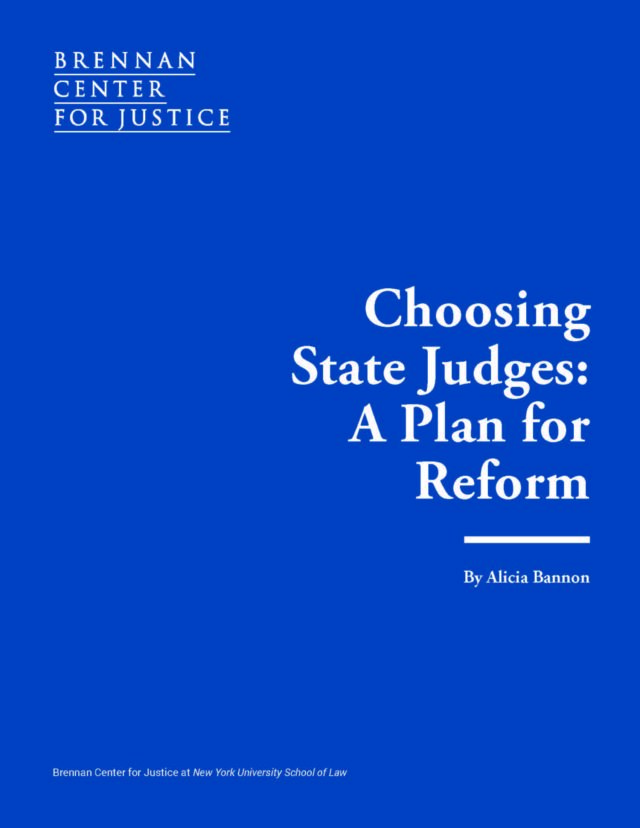 Read this timely report from the Brennan Center, urging states to reform their systems for choosing judges and adopt additional safeguards for judicial election, in order to preserve judicial independence.
Read this timely report from the Brennan Center, urging states to reform their systems for choosing judges and adopt additional safeguards for judicial election, in order to preserve judicial independence.
Fair and impartial justice is under threat in state supreme courts across the country. Less than a generation ago, state supreme court elections were subdued affairs. No longer. Today, special interests routinely pour large sums into supreme court races. As of January 2017, 20 states had at least one justice on their supreme court who had been involved in a $1 million election. And during the 2015-16 election cycle, more justices were elected in $1 million-plus elections than ever before. Outside spending by special interest groups — most of which do not disclose their donors — also shattered previous records. Perhaps unsurprisingly, nearly 90 percent of respondents to a 2013 poll said they believed that campaign cash affects judicial decisions.
While the U.S. Supreme Court usually grabs the headlines, state supreme courts play a powerful role in American life. Ninety-five percent of all cases are filed in state courts, and state supreme courts are typically the final word on state law. Their decisions can have profound effects on our lives and on states’ legal and policy landscapes — from whether an Ohio town can regulate fracking, to whether Kansas must increase public education spending by hundreds of millions of dollars, to whether Massachusetts officials can detain people based on a request from federal immigration authorities. At a time when the broken process for confirming justices to the U.S. Supreme Court is in sharp focus, safeguarding state courts as a backstop to defend our rights should be urgent business.
A judge’s job is to apply the law fairly and protect our rights, even when doing so is unpopular or angers the wealthy and powerful. But the reality of competing in costly, highly politicized elections is at odds with this role. If a judge rules against a major donor, will that donor still fund her next campaign? If she angers a powerful political interest, will she face an avalanche of attack ads? These electoral pressures create a morass of conflicts of interest that threaten the appearance, and reality, of fair decision-making. They’re also a roadblock for aspiring judges who can’t tap million-dollar networks.
Left unchecked, these trends can undermine the integrity of state supreme courts and the public trust that undergirds their legitimacy. The implications for American justice are acute.
Download: Choosing State Judges: A Plan for Reform